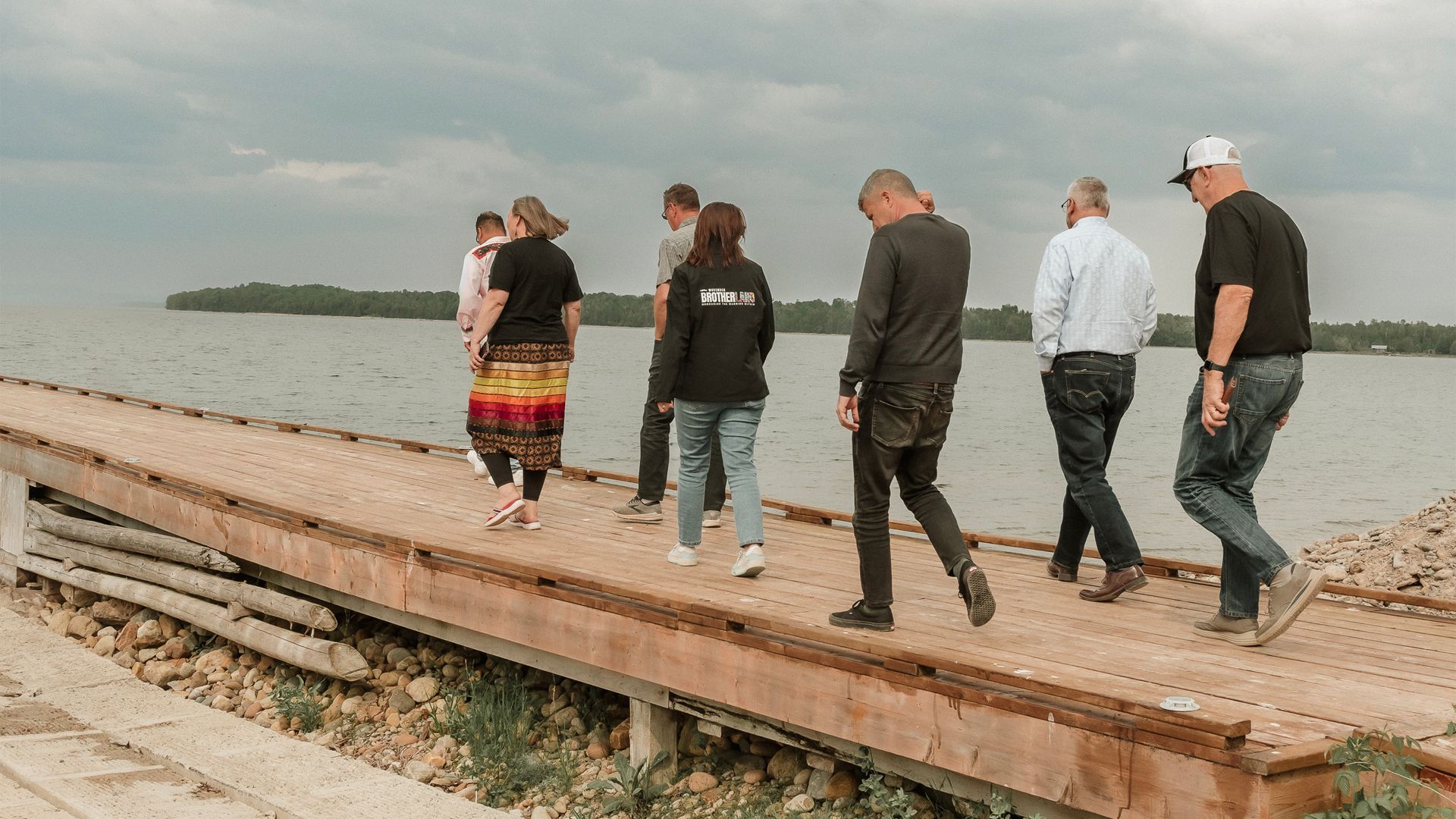

How Movember is improving the mental health of Indigenous men in Canada
Learning traditional crafts and practical carpentry skills is transforming the mental wellbeing of Indigenous men in three Canadian prisons – thanks to a Movember-funded program.
The Work 2 Give (W2G) program, which is currently running in Collins Bay, Joyceville, and Beaver Creek institutions in Ontario, offers inmates, aged between 18-89, the opportunity to take part in meaningful work, learn employment skills and adopt positive social values.
Giving back to First Nation communities
Through the program, men learn how to make items, such as toys, furniture, clothing, drums and much more with materials that have been donated to participating prisons. Once the items have been made, they are distributed to Indigenous communities, with a focus on those with vulnerable populations and need.
Since December 2021, 54 men have taken part in W2G, building dozens of items including picnic tables, garden beds, planters, hand drums, skate changing rooms, bleachers, benches and much more for the Wahgoshig, Taykwa Tagamou and Wiikwemkong First Nation communities in Ontario.
W2G team leader Robert Rittwage says: “Indigenous men involved in the W2G program develop new skills and understanding about themselves which redefines who they are as Indigenous men and supports a fulsome healing journey. The men are focused on their release planning, developing work-related skills and are willing to learn. Most of all, they have the desire to help others and give back to their community.”
The impact on Indigenous men's lives
The impact on the men who have taken part in W2G has been life changing. In November 2022, a team of four men from Joyceville Institution in Kingston, Ontario, built a ‘Carving Space’ shed for the men of Ikaarvik half-way house, a residential facility in Ottawa for Inuit men transitioning out of prison.
One of the inmates was able to make the 180km journey to Ikaarvik to take part in the ceremony and complete the circle of giving the space away. He recalls: “I got this fortunate experience to be able to see the smiles on their faces, to shake the guy’s hand. That gives people the motivation to carry on in their life. This guy, who I have never met in my life, all he asked for - which really hit me in the heart - was a carving shed. He just wanted to go somewhere where he could let his spirit fly and do what he does. And that, for me, is worth it.”
Sonia Prevost-Derbecker, Movember’s Director of Global Indigenous Programs, says: “This program provides support to both the men inside prison and the communities outside. It acknowledges the men’s gifts and the fact that they are more than just the mistakes they made, as are we all.
“It allows for the communities to receive the handmade items that inmates have created in a way that is not only a physical offering of goods but a genuine message of wellness and kindness. This really supports reciprocity between the men and the community, helping to rebuild relationships and collectively heal.”
Stats reveal a failure in the justice system
Since the Second World War, disproportionate numbers of Indigenous people in Canada have been incarcerated. Despite attempts to reverse the trend throughout the 1980s and 1990s, a Royal Commission on Aboriginal Peoples found that ‘the justice system has failed Aboriginal people’ - a problem that continues today.
Indigenous men represent 20% of the prison population while only making up 2.5% of the entire population. Findings from the Office of the Correctional Investigator’s 2021-2022 Annual Report revealed that Indigenous people were 40% more likely to attempt suicide than non-Indigenous people. And in 2020/21, 83% of suicides within the Canadian prison system were Indigenous people
Movember funding making a difference
W2G was first developed by Correctional Services of Canada (CSC) in 2012, to provide meaningful employment for inmates and benefit underserved First Nations communities in British Columbia.
Movember’s involvement with the project began in 2015, with funding for an evaluation of the pilot project carried out by a team of researchers from the University of British Columbia.
A study published in 2020, concluded that W2G had great potential to support healing and rehabilitation for incarcerated men participating across federal prisons, as well as potential to support healing and wellbeing, in the partnering rural and remote Indigenous communities.
Improving outcomes for Indigenous men's health
Michelle Terry, CEO of Movember, says: “We are proud to have supported and helped to build evidence for this important program which is enabling Indigenous men who take part to develop a sense of connection and purpose which benefits their mental health and wellbeing.
“Movember is honoured to work with our Indigenous communities in allyship. By supporting Indigenous men to support their communities, we are not only building capacity but fostering understandings of sovereignty and self-governance. This program is just one example of our commitment to Indigenous peoples globally.”